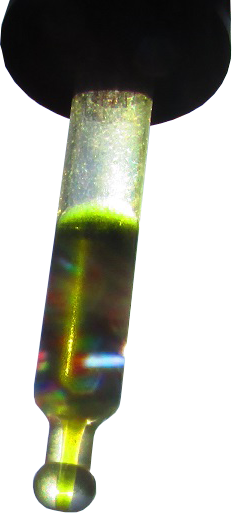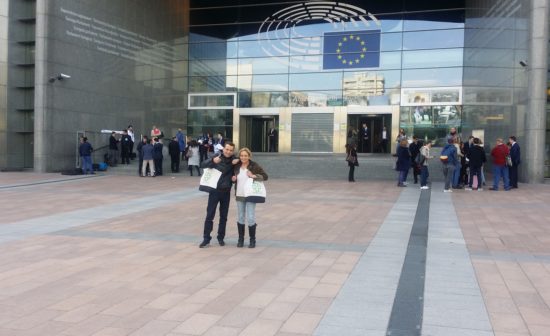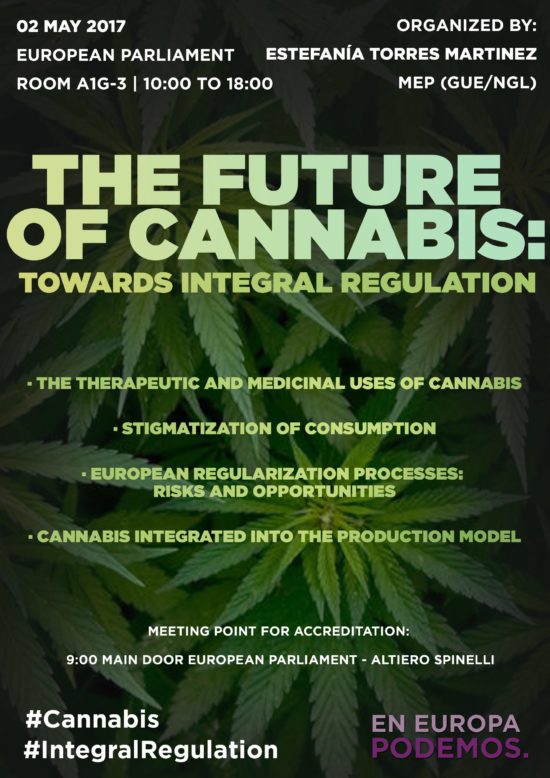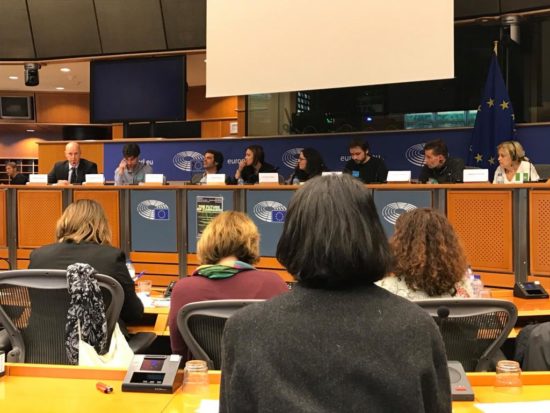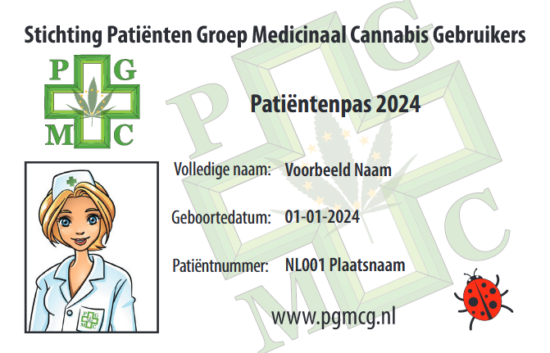2/5/2017 Europees Parlement Brussel: De toekomst van cannabis
The future of cannabis: towards integral regulation
What did PGMCG tell in Brussels:
We are Marian Hutten and Serge de Bruijn. We are the founders of the Patient Group Medical Cannabis Users (PGMCG) Foundation in the Netherlands.
PGMCG is a platform for patients, doctors and politicians. We inform a wide audience about the use of medical cannabis in order to realize a further acceptance and normalization of the use cannabis and cannabinoids as a medicine. We are taking care for the dutch translations of our partnerorganisation the IACM
To begin with, some basic statements about the lack of information:
More research has to be done to find out which type of medical cannabis can be used to cure specific diseases. Due to a lack of scientific evidence it will take a long time until this problem will be solved, specially when the criminalisation goes on like now.
Furthermore in general the pharmaceutical industry recognizes that medicines shouldn’t be seen as a generic cure for everybody with a specific disease. Everybody seems to react in a different way to a medicine due to its personal genes system. For cannabis it’s working in the same way.
Doctors need to be informed about the medical use of cannabis. Smoking is not the only way to use it. You can also use cannabisoil or cannabistincture, edibles and more.
Cannabis can be used in more situations than the ‘accepted three’: Glaucoma, Multiple Sclerosis and chronic pain (these are the three situations in which in Greece cannabis will be soon accepted as a medicine).
Actual situation in the Netherlands:
A growing number of countries is legalizing the medical use of cannabis. This of course is a very good development. In the Netherlands cannabis is accepted as a medicine since 14 years. But the health insurance does not pay any longer for medical cannabis. In Germany it’s the opposite and all illnesses are accepted for using medical cannabis.
The fact that the insurance is no longer compensating cannabis causes problems for quite some patients, although only 20 % of the Dutch patients were compensated for their cannabis by a health insurance. These patients now have to find new ways to obtain their cannabis.
Only small part of the patients buy their cannabis in pharmacies. Lots of patients obtain their cannabis/products in the coffeeshop or in the illegal circuit (also cannabis oil). Pharmacies are avoided because of:
1. The high price of the cannabis in pharmacies,
2. The lack of varieties,
3. The lack of confidence in the government controlled pharmaceutical cannabis and the pharmaceutical industry.
4. Gamma irradiation
For those reasons, many patients obtain their cannabis ‘off- grid’. But these cannabis- products are not quality tested by any authority. There‘s no information about useful components (different cannabinoids, terpenes, etc) or toxic components like pesticides, heavy metals and funghi.
The off-pharmacy part of the medical used cannabis is absolutely ‘Wild- West’ at this moment.
Tilburg, the situation in our city:
To overcome these problems we started talking with the local authorities in the city of Tilburg.
Together we worked out a format which allows people to grow their own preferred strain of cannabis for their own medical use. Patients can grow the strain they need.
The Mayor of Tilburg has set out a set of clear and simple criteria for growing cannabis for your own medical use. Main principles are:
– you need a certificate from your doctor,
– you have to grow in a safe way
– the maximum amount of plants is 5.
If you obey these criteria you get a waiver in case authorities catch you growing. They will leave you and your plants in peace. In Tilburg a group of 16 patients want to start growing their medical cannabis, some of them just started growing.
This agreement with the city of Tilburg is ground breaking in the Netherlands and several other local governments (Haarlem) are considering to follow this example.
Liesbeth van Tongeren did make a point in the parliament, will be continued.
Why is it important to grow our own medicine!
There are many different cannabisplant varieties, with many different medical purposes. One variety can work out in a different way for two different patients, the choice of a variety is a very personal one. It’s important to offer a wide range of diverse cannabis varieties. But the availability of medical cannabis varieties is restricted. In the Netherlands for example, only five different varieties are available in pharmacies and many medical cannabis consumers cannot find the product they need for their specific illness.
There is some scientific knowledge about the medical benefits of cannabis, but only limited scientific research has been done. Cannabis probably has far more benefits than scientists know at this moment. Many of the patients we know, learned by their own experience which type of cannabis plants suits their disease, what specific cannabis strain is useful in their situation. Most of the time this variety is not for sale in a pharmacy or coffeeshop.
The pharmacy prices for this medical cannabis are high. When a patient uses cannabisoil he might use about 5 grams daily. This will cost a fortune at a commercial price.
In this discussion we almost forget: medical cannabis users are ill people, mostly patients since quite some time. They lost faith in health insurances, doctors and the government. They want to be in control again. If you grow your own plants in your own way, you choose your own plant strains, you are 100 % sure no toxic sludge is used for your plants. That brings patients back in control again. Being in control is for many patients a good start to deal with their illness. It gives them energy, mental power and autonomy, it makes patients stronger.
These insights meet our idea that patients should have the right to grow their own medical cannabis!

